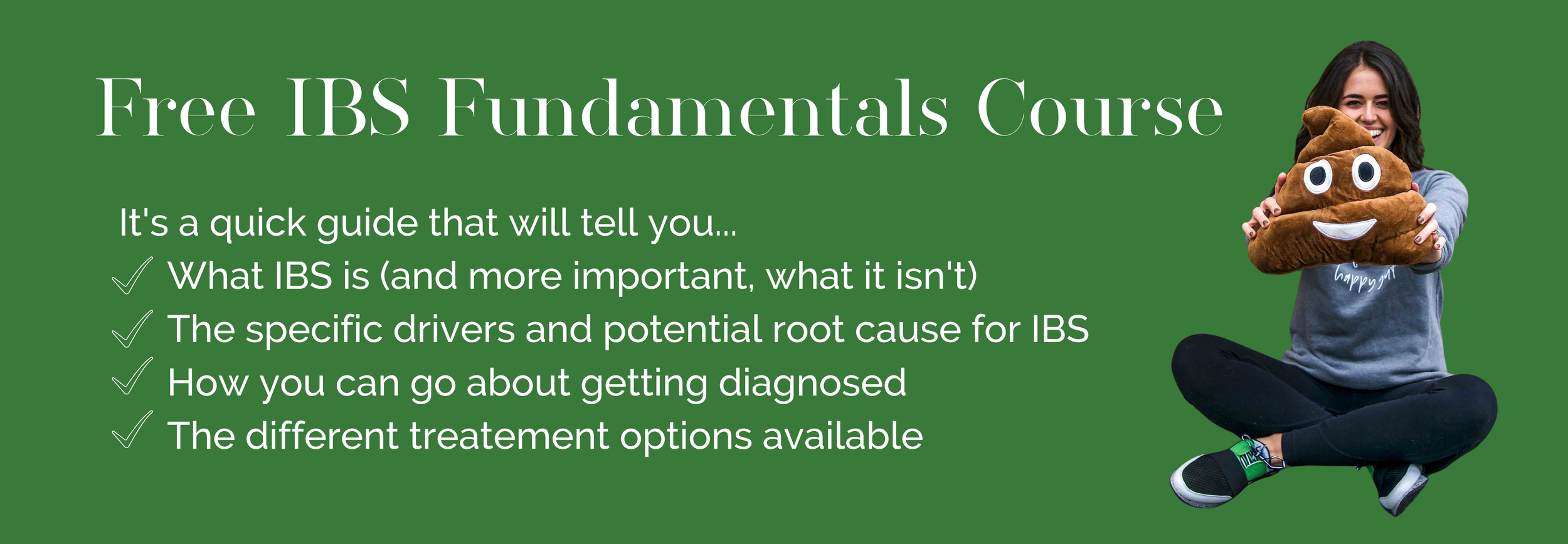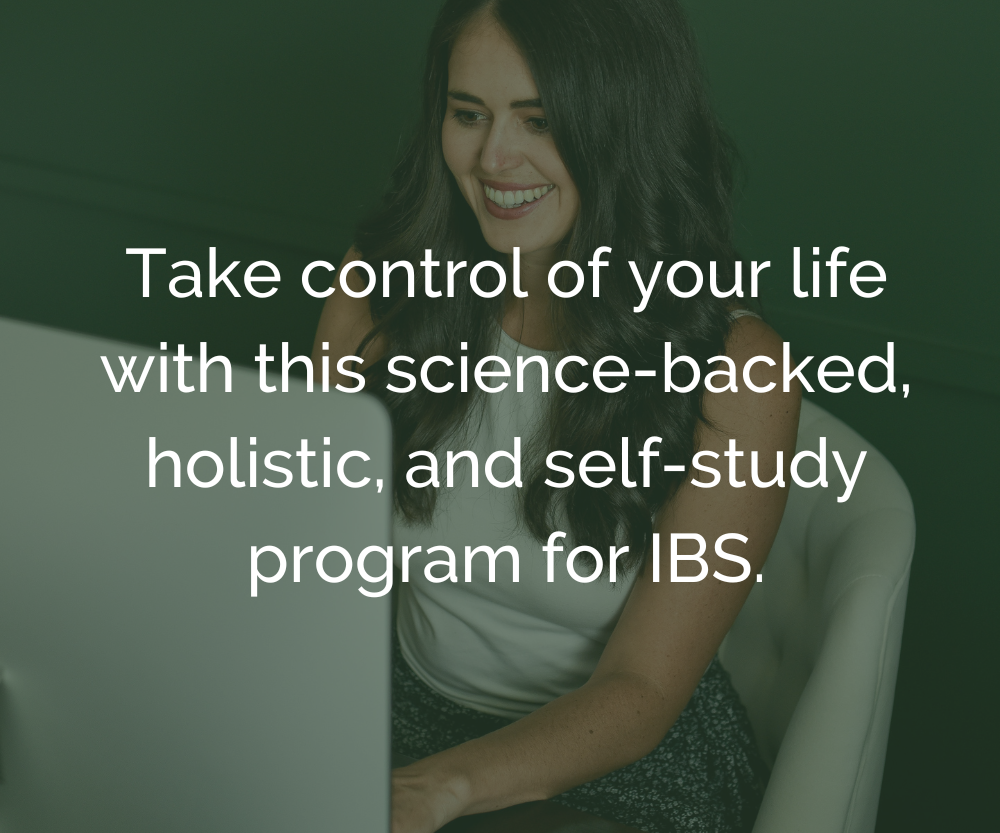Best Fiber Supplements for IBS
Fiber is important, and the general recommendation is to increase dietary fiber wherever you can. But, per usual, this recommendation can be tricky for those with IBS.
Fibers are components of plants that we eat, but they aren’t digested. They play a role in feeding our beneficial gut bacteria, help stabilize blood sugars, and help lower cholesterol levels.
While most fibers have similar roles in the body, they aren’t all equal. There are two major factors that can differentiate fibers and determine whether or not the fiber source is helpful for IBS: solubility and fermentability.
Solubility refers to the fiber’s ability to dissolve in water or not, giving it the label soluble or insoluble. Read here to dig deeper into the difference between the two, as well as examples of both. Fermentability refers to the fiber’s gas-causing properties in the gut. FODMAPs are highly fermentable, so for IBS highly fermentable fibers are best avoided.
What type of fiber can make IBS worse?
Highly fermentable fiber supplement sources include inulin, wheat bran, chicory root, fructo-oligosaccharides (FOS), and galacto-oligosaccharides (GOS). These are most likely to worsen IBS symptoms.
What type of fiber could improve IBS?
Less fermentable fiber supplement sources include psyllium, linseeds, oats/oat bran, sterculia, and methylcellulose. These are less likely to worsen IBS symptoms, and may actually improve symptoms. There is also small evidence to support the use of partially hydrolysed guar gum (PHGG), which is used to make Sunfiber, to reduce symptoms.
Are fiber supplements necessary for IBS management?
This is the question I’m guessing you wanted to know when you opened this post. I wish the answer was a black or white, yes or no, but it’s more like a sometimes and not always. Daily fiber intake is definitely necessary, but the amount of fiber you eat may vary from another person with IBS, based on how much you currently eat, your symptoms, and other digestive health concerns (like ulcerative colitis).
What’s your poop personality? Find out here!
Ideally, you will get your fiber intake from food, by eating a variety of grains, fruits, vegetables, nuts, and seeds. However, if you’re unable to eat a fiber-rich diet due to allergies, the restrictive nature of the low FODMAP diet, your trigger foods, low caloric needs, or your access to plant foods, a supplement could be helpful. Taking a fiber supplement “just in case,” like you may do with a multivitamin, is not wise. Too much fiber, especially for those with IBS, can actually lead to gas, abdominal pain, bloating, constipation, and/or diarrhea. As with any medication or supplement, it’s important to consult with your doctor or dietitian before starting a fiber supplement to make sure it’s appropriate and safe for you.
Got it. If I decide to try a supplement, which do I choose?
I’ll say this again - it’s best to consult with your doctor or dietitian to find the absolute best fit for your needs. But, if you want some ideas of different fiber sources that have shown to be effective for reducing IBS symptoms, here ya go:
Psyllium, which is found in Metamucil, has shown to reduce universal symptoms in IBS. Metamucil does contain other added ingredients, so it may be best to take psyllium in a more natural form, like this one.
Oats/oat bran may be effective for those with IBS-C. You can create your own oat powder by blending oats until they are a fine texture.
PHGG, or SunFiber, may be helpful both both IBS-C and IBS-D. Regular Girl is a certified low FODMAP brand for this fiber.
Methylcellulose, which is found in Citrucel, may be helpful for IBS-C.
If you choose to use supplemental fiber to increase your total fiber intake, it’s important to start with a small dosage. The body has to adapt to more fiber, so start small for a week or so, then increase slowly to your tolerance.
If you increase the amount too quickly, you’re likely to experience negative side effects like bloating and gas. Like you would with an increase in fiber-rich foods, always increase water intake as you increase fiber. This will help you avoid constipation.
You may also find that supplementing fiber is not a daily need, but most helpful on days when you’re unable to get enough fiber from foods. Work with your dietitian to find a dose and plan that works best for your diet and lifestyle.
Are you frustrated with your IBS symptoms? Do you desire to be confident in your food choices? Do you want to have a healthier relationship with your body and diet? Are you ready to take control of your IBS?



